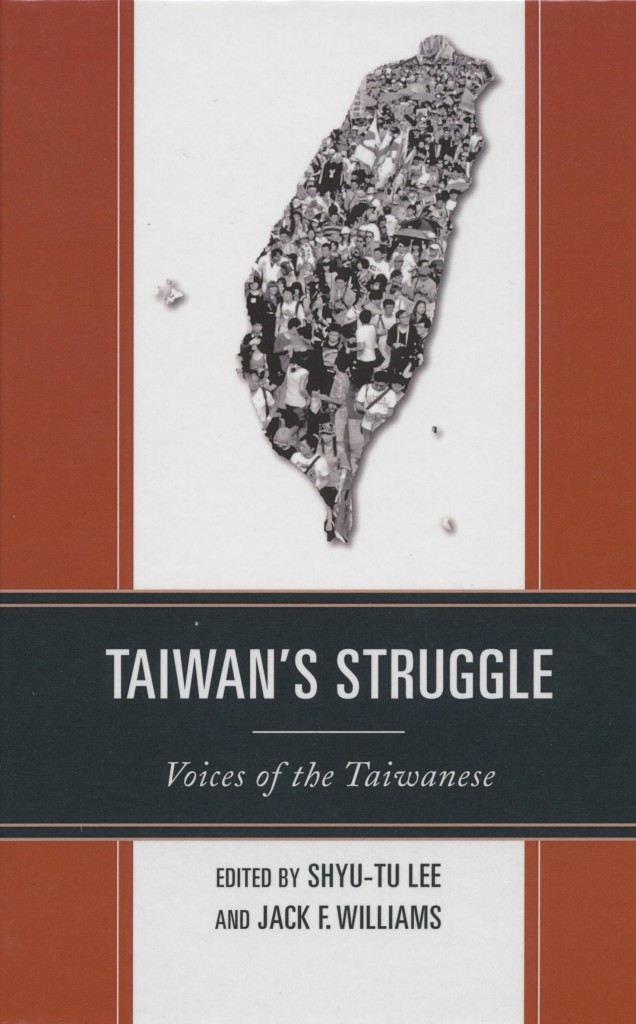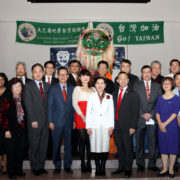TAIWAN’S STRUGGLE
Preface
After retiring from my engineering and public administration career, I devoted myself to helping promote Taiwan identity and confidence in my homeland. I produced three books in Chinese toward that goal, but I knew the next thing urgently needed is to let the voices of the Taiwanese be heard by the rest of the world. When I was elected president of the North American Taiwanese Professors’ Association (NATPA), I mobilized support for this book project, Taiwan’s Struggle: Voices of the Taiwanese.
The original idea was to invite respected and distinguished Taiwanese to speak up for Taiwan and the Taiwanese, to let the world know that: (1) Taiwan is different from China, and people should not mistake Taiwanese as Chinese; (2) Taiwan has the capability to contribute to and wants to be a responsible member of the international community; and (3) What the Taiwanese are pursuing, or hope to, for their future. Later, the book expanded its scope to add a fourth objective, namely, to let the world know how the superpowers have manipulated Taiwan, using Taiwan as a chess piece in big power politics. After sending out invitations for contributing essays, I quickly received warm responses from some of Taiwan’s most distinguished political leaders, academicians, government officials, and other public figures in contemporary Taiwan, including a former president and former vice president. This book is an idea whose time has come, we believe.
To help ensure the quality of the book, I invited Prof. Jack F. Williams to join the project, as a co-editor. Together, we have striven to make the essays as high quality as possible, both in English and in accuracy of content. A number of the essays were written in Chinese, which were then translated and edited, and required great care to preserve the character and intent of each essay.
One of the most vexing issues we faced is how to spell proper names when translating the names from Chinese characters to roman letters. In the interest of having one consistent system throughout the book, we decided to put the family name first, in the traditional way for Taiwanese names, and in general we used the pinyin system. Following the Chicago Manual of Style, two-part given names are hyphenated. However, in the interest of making the contributors’ names more easily recognizable to readers, we have included the Chinese characters in parentheses in the table of contents and on the essays.
This volume is a joint effort that received help from many people. We thank all the essay contributors for their dedication and efforts; without their participation and support, the book literally could not have been done. We deeply appreciate the excellent translations provided by Ms. Naomi Wei-wen (藍唯文),Ms. Cheng Li-lin (鄭麗玲),and Prof. Chen Ching-chih (陳清池)• During the process of producing this book, we also received helpful advice from many people: Prof. Peter C. Y. Chou (周鉅原);Prof. Lee Tun-hou (李敦厚);Prof. Frank S. T. Hsiao (蕭聖鐵);Prof. Pan Bin-tau (潘明道);Prof. Chen Wen-yen (陳文彥);Prof. Lily Li-chu Dyson (鄭麗珠);Prof. Chen Yi- shen (陳儀深);Dr. Chuang Liu-hsiung (莊六雄);Dr. Chen Chen-yao (陳正耀);Dr. Chuang Wen-hsien (莊文獻);Dr. Easton Lee (李旭東);Dr. Jerome Huang (黃峙榕)• Our appreciation also extends to Mr. Lee Tai-chih for pro¬viding the photos. We also appreciate the support and endorsement for the project from NATPA (North American Taiwanese Professors’ Association). Our special thanks to Dr. Gerrit van der Wees for his review of the entire manuscript and his constructive suggestions. A special thanks to an anonymous Taiwanese American for his generous financial support. A sincere appreciation to my co-editor. Last but not least, the editors would like to thank their spouses for their understanding and patience in this long process.
Shyu-tu Lee
EDITORS
Shyu-tu Lee (李學圖)
A Master of Science degree in Engineering from the University of Michigan (Ann Arbor), and a Doctor of Public Administration from Western Michigan University. Served as a Transportation Engineer, Systems Development Manager, Director of the Engineering and Scientific Data Center, and Administrator of the Office of Management Assessment, all with the Michigan Department of Transportation. Also served as an adjunct faculty with the University of Michigan (Flint). In retirement, active in Taiwanese American affairs; is a research fellow With the Los Angeles-based Institute for Taiwanese Studies, served as the chair of the research committee and president of the North American Taiwanese Professors Association (NATPA), and a board member for the Formosan Association for Public Affairs. Published three edited books, in Chinese, with the purpose of promoting Taiwan identity and consciousness.
Jack F. Williams
Professor emeritus in Geography, Michigan State University. BA and MA in geography, University of Washington; PhD in geography, University of Hawaii. On faculty of MSU, 1972—2006,also director of Asian Studies-MSU 1990-1999. Visiting professor numerous times at University of Hong Kong, National Taiwan University. Specialist in regional geography (China-Tai- wan) and urban/economic and environmental geography. Numerous publications (books, book chapters, journal articles) in these specialties, with particular focus on Taiwan, including (with Chang Ch,ang-yi) Taiwan ‘s Environmental Struggle (Routledge, 2006). Active in Taiwan Studies Group, Association for Asian Studies for many years; director of the Michigan China Council of the National China Council (Asia Society) in 1980s.






